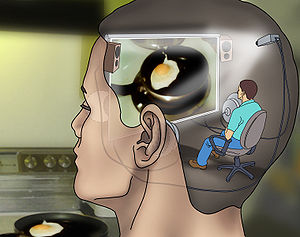It seems that it is now possible to selectively erase memory. The discovery is being touted as a treatment for erasing painful memories. While the discovery is in the laboratory phase, it is only a matter of time before the treatment is offered to the general public. No one likes painful or traumatic memories. So a treatment like this one would almost certainly be taken up by a large number of people.
Should a treatment like this be used? This questions is related to another one: what makes a personality? All of us undergo many different experiences in our lifetime. Some of these are pleasant, many more are unpleasant and a few are downright traumatic. Generally speaking, we also do not retain all the memories of all our experiences. However, every experience, pleasant or unpleasant, helps to develop our personality. These experiences help us to become a unique individual. Over time, they help us to grow and mature mentally. Why is a person in their 40s generally considered more mature than someone in their 20s? The answer lies in the greater number and variety of experiences that the older person has gone through.
So the question becomes, what will happen to our personality if we start to selectively erase memories? What is the criteria for erasure? If experiences help us to mature, then surely erasing the memory of those experiences will cause us to regress. Will that not make us less than what we are? How will anyone grow or learn if unpleasant experiences can be easily and selectively erased? It is said that we learn from our mistakes. How can we learn if we choose to forget about them? I feel that this is an alarming development. Unfortunately I fear that all too many people will choose to erase memories that they consider painful. This will not enhance us as human beings. It will instead degrade us to become little better than animals living in a rosy haze.






